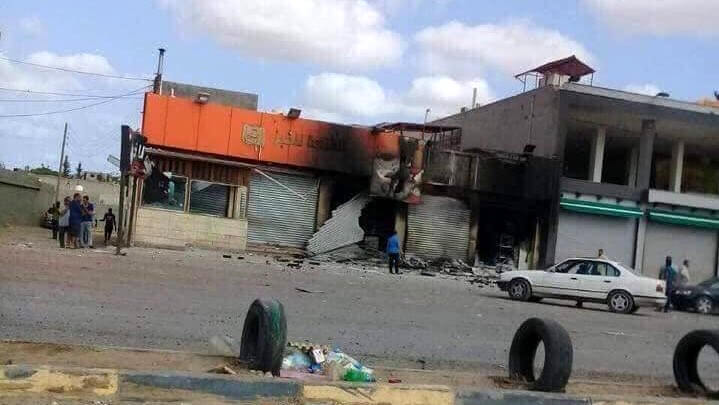TRIPOLI, LIBYA – As the week began, Tripoli reverted to a state of chaos as armed cadres representing rival factions vie for control of the Libyan capital. Since Monday, local media has reported that five have been killed and 27 wounded in the city, prompting the country’s health ministry to declare a state of emergency.
While in-fighting between rival militias has been common outside of the capital since the 2011 NATO intervention deposed the country’s former leader Muammar Gaddafi, these recent clashes are notable as the warring sides both technically operate under Libya’s UN-recognized Government of National Accord (GNA). Local reports have stated that in-fighting GNA groups have used heavy weapons, including artillery, and that residential areas have been targeted.
The fighting has been condemned by the GNA’s Presidential Council (PC), which issued a statement on Monday warning “these gangs and outlawed groups that have terrorized civilians and residents; there is no space for such lawlessness and chaos.”
Despite the PC’s statement, chaos and lawlessness have been the daily reality in Libya since Gaddafi’s 2011 overthrow. This, in part, is due to the fact that the GNA has long struggled to consolidate control over the country, largely due in turn to its inability to dislodge the rival government in Eastern Libya led by Khalifa Haftar. Haftar is a Libyan military defector with deep ties to the U.S. CIA and currently backed by the UAE and Egypt. Armed groups, including Daesh (ISIS), also control portions of Libyan territory not claimed by the GNA or Haftar governments.
Images showing aftermath of the clashes which took place in #Tripoli. Situation a little calmer than yesterday but remains tense, as no peace treaty was reached. Roads are empty & tanks are still seen on the streets #Libya pic.twitter.com/VOiL0T61ZK
— Nadia Ramadan (@NadiaR_LY) August 28, 2018
A power vacuum inviting outside exploitation
As a result, Libya continues to lack a strong central government over seven years after Gaddafi was removed from power and brutally murdered by NATO-funded “rebels.” This vacuum has allowed for the proliferation, not only of terrorist groups throughout the country, but also an illegal arms and slave trade in what was once Africa’s wealthiest nation with the continent’s highest standard of living.
While the reason for GNA in-fighting is unknown, such chaos is likely to greatly benefit the Haftar-led government, which has long called for the GNA’s overthrow and has recently received help from some unlikely allies. Since last year, Haftar’s administration has been receiving considerable military aid from Israel and meeting with Israeli intelligence, along with continued backing from the UAE and Egypt, all of which are influential U.S. allies in the region.
The Trump administration also claimed last year that it would seek to establish a permanent military presence in Libya aimed at “uniting” the country under a single government, a government that would most likely have Haftar at the helm, given the GNA’s loss of control and Haftar’s control over most of Libya’s oil fields. It remains to be determined whether “foreign meddling” from any of these countries bears any responsibility for the recent chaos on the streets of Tripoli.
Top Photo | The aftermath of recent clashes which took place in Tripoli, Libya. Twitter | Nadia Ramadan
Whitney Webb is a staff writer for MintPress News and a contributor to Ben Swann’s Truth in Media. Her work has appeared on Global Research, the Ron Paul Institute and 21st Century Wire, among others. She has also made radio and TV appearances on RT and Sputnik. She currently lives with her family in southern Chile.


